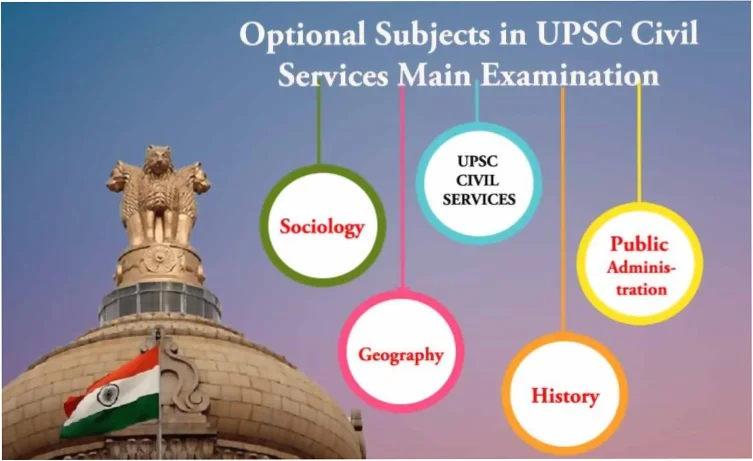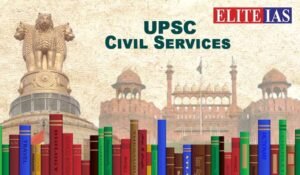The Union Public Service Commission (UPSC) examination is known for its vast syllabus, which includes an optional subject that the candidates need to choose. The selection of an optional subject plays a crucial role in the UPSC exam, as it not only contributes to the overall score but also reflects the candidate’s interest and knowledge in a specific field. However, choosing the right optional subject can be a challenging task for aspirants. In this article, we will provide a comprehensive guide on how to choose an optional subject in the UPSC exam, considering various factors such as interest, background, scoring potential, availability of resources, and strategic considerations.
I. Understand the Importance of the Optional Subject:
- Scoring Potential:
- The optional subject carries significant weightage in the UPSC Main Examination, accounting for 500 marks out of a total of 1750 marks.
- Choosing the right optional subject can potentially boost the overall score and improve the chances of clearing the exam.
- Interest and Comfort Level:
- Opting for a subject of interest ensures a more engaging and enjoyable preparation process.
- Familiarity with the subject matter can enhance understanding and retention of concepts.
- Background and Academic Strength:
- Consider your educational background, academic strengths, and prior knowledge in a particular subject.
- A subject in which you have a strong foundation can provide an advantage in terms of understanding and grasping complex topics.
II. Research and Self-Assessment:
- Study the Syllabus:
- Carefully examine the syllabus of optional subjects prescribed by the UPSC.
- Analyze the topics and sub-topics to get an idea of the subject’s depth and breadth.
- Assess Personal Interest:
- Evaluate your personal interests, hobbies, and areas of curiosity.
- Determine the subject areas that genuinely captivate your attention and motivate you to delve deeper into the subject matter.
- Evaluate Past Experience:
- Consider any past academic or professional experience that might be relevant to a particular subject.
- Experience in a related field can provide a solid foundation for understanding and grasping concepts.
III. Availability of Resources:
- Study Material:
- Research the availability of comprehensive study materials, reference books, and online resources for each optional subject.
- Look for subjects with a wide range of resources to aid your preparation.
- Coaching and Guidance:
- Assess the availability of coaching institutes or mentors specializing in your shortlisted optional subjects, like History, Sociology optional coaching etc.
- Coaching can provide structured guidance, study materials, and a platform for doubt clarification.
IV. Analyze Previous Years’ Performance:
- Previous Years’ Success Rate:
- Analyze the performance of candidates in previous years who opted for specific optional subjects.
- Consider the success rate and the average scores obtained by candidates in those subjects.
- Scoring Consistency:
- Look for optional subjects that consistently yield good scores in the UPSC Main Examination.
- Analyze the trends and identify subjects with a track record of scoring well.
V. Consult Peers and Experts:
- Seek Guidance:
- Interact with candidates who have already appeared for the UPSC exam or experts in the field.
- Seek their insights and advice on choosing an optional subject based on your strengths, interests, and future career prospects.
- Online Forums and Communities:
- Join online forums and communities dedicated to UPSC preparation. You can also join Online coaching for UPSC, they have experienced and dedicated mentors for moderation or giving clarity to the concept.
- Engage in discussions and seek recommendations from fellow aspirants.
VI. Consider the Overlapping Syllabus:
- General Studies Syllabus:
- Analyze the overlap between the optional subject and the general studies (GS) syllabus of the UPSC exam.
- Consider subjects that have significant overlap with the GS syllabus.
- Choosing an optional subject that aligns with the GS syllabus can provide an advantage as it allows for integrated preparation.
- It helps in saving time and effort by studying common topics once for both the optional subject and the GS papers.
- Synergy with Other Subjects:
- Consider the interdisciplinarity of the optional subject with other subjects in the UPSC exam.
- Opting for a subject that complements or enhances the understanding of other subjects can lead to a holistic preparation approach.
VII. Future Career Prospects:
- Personal and Professional Goals:
- Reflect on your long-term career goals and aspirations.
- Consider how the knowledge gained from the optional subject can contribute to your future career prospects.
- Relevance to Administrative Services:
- Assess the relevance of the optional subject to the role of an administrator in the civil services.
- Subjects that provide a deeper understanding of social, economic, and governance issues can be beneficial for administrative roles.
VIII. Language Proficiency:
- Language Comfort:
- Evaluate your comfort level and proficiency in different languages.
- Consider opting for an optional subject that is available in a language you are fluent in.
- Language Score:
- Take into account the scoring potential of different language papers in the UPSC exam.
- If you are confident in your language skills, opting for a language-based subject can provide an additional scoring opportunity.
IX. Strategic Considerations:
- Subject Popularity:
- Consider the popularity of the optional subject among UPSC aspirants.
- Popular subjects often have a wide range of resources, study materials, and guidance available.
- Availablility of Expertise:
- Take into account the availability of experts, mentors, or teachers who can guide you in the chosen optional subject.
- Expert guidance can significantly enhance your understanding and performance in the subject.
- Success Stories:
- Research success stories of candidates who opted for specific optional subjects.
- Analyze their strategies, study materials, and approach to gain insights into the subject’s preparation.
X. Making the Final Decision:
- Weighting the Factors:
- Consider all the factors discussed above and assign weightage to each based on your priorities and circumstances.
- Create a matrix or ranking system to objectively compare the shortlisted optional subjects.
- Trial Period:
- If you are uncertain about your choice, consider dedicating a trial period to studying each shortlisted subject.
- During this period, assess your interest, understanding, and comfort level with each subject before making a final decision.
- Trust Your Instincts:
- Ultimately, trust your instincts and choose a subject that resonates with you intellectually and emotionally.
- Passion and genuine interest in the subject will drive your motivation and dedication throughout the preparation process.
- Conclusion:
Choosing the right optional subject in the UPSC exam is a crucial decision that requires careful consideration. By assessing factors such as personal interest, background, availability of resources, scoring potential, and strategic considerations, you can make an informed choice. Remember, there is no universally correct optional subject, and what works for one candidate may not work for another. Therefore, invest time in self-reflection, research, and consultation to select an optional subject that aligns with your strengths, interests, and future goals. With thorough preparation and a genuine passion for the subject, you can excel in the UPSC exam and pave the way for a successful career in the civil services.


